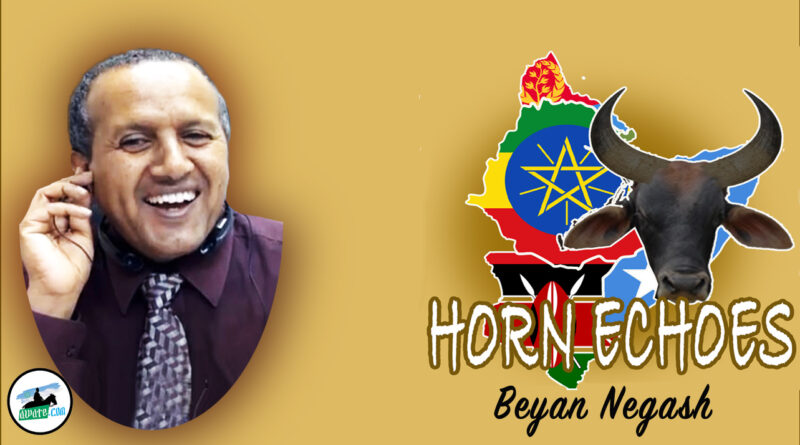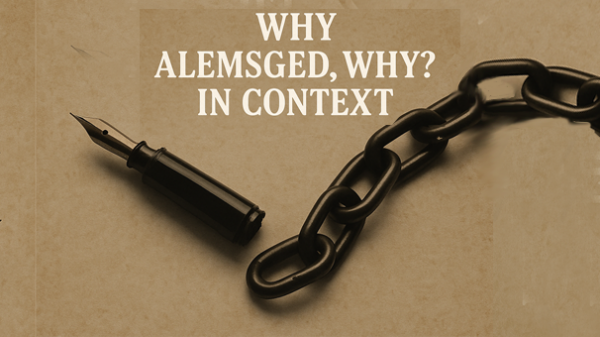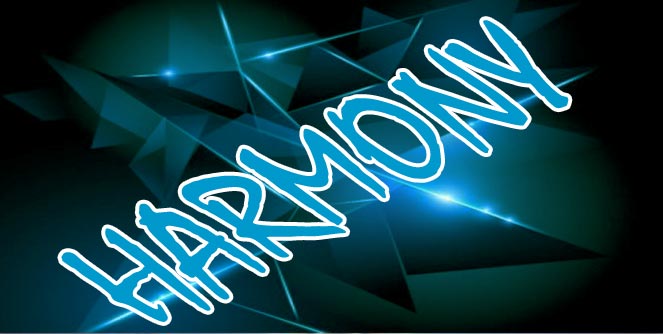Reframing Eritrea’s Post-Independence Paradox

For more than three decades, the story of Eritrea has been told in a narrow and predictable register. It begins with the extraordinary military triumph of 1991, moves quickly to the UN-supervised referendum of 1993, pauses briefly on the promise of constitutional drafting, and then hammers home the familiar conclusion: a descent into authoritarianism and the lamentable absence of intellectuals. The latest iteration of this narrative simply dusts off the old template, replacing only the idioms to suit contemporary tastes.
What this repetition demonstrates is an unwillingness to confront the paradox at the heart of Eritrea’s modern history. Eritrea is not simply a failed promise of democracy. It is a nation that has fused repression with defiance, authoritarianism with sovereignty, and coercion with an unrelenting refusal to become anyone’s client state. To erase the latter is to misrepresent the former.
The familiar script follows a set pattern. Eritrea is compared unfavorably to other revolutions that produced canonical intellectual figures. Jefferson for the American Revolution. Rousseau and Voltaire for the French. Gandhi for India. Paine for the United States. The argument then claims that Eritrea produced no equivalent figures, that its revolution was purely military in orientation, and that this absence explains the authoritarian drift after independence.
This is not new. It is the same shorthand that has circulated since the mid-1990s. The analogy with Haiti or Mexico is recycled again and again: great military triumphs, no ideological architects, and thus failure in state-building. The dichotomy of “state without nation” or “power without belonging” has been deployed so often that it now functions less as analysis and more as cliché.
Such arguments miss two critical points. First, Eritrea was not devoid of intellectual production. Its revolution was saturated with ideological texts, manifestos, and political education. The problem was not absence but monopoly: a single party claimed ownership of revolutionary thought and suffocated pluralist discourse. Second, Eritrea’s trajectory cannot be understood in isolation from its continental context. Unlike most of its peers, Eritrea consistently refused to be incorporated into the web of dependency that ensnared postcolonial Africa.
To see the distinctiveness of Eritrea’s path, one need only consider the regional landscape. Ethiopia provides the starkest example. When instructed by its patrons to withdraw from the front, it complied. When ordered to march into Somalia, it obliged. When tasked with acting as a proxy in counterterrorism campaigns, it delivered. Sovereignty in such a framework was less a national principle than an external allocation.
Across Africa, this was the dominant pattern. Governments traded independence for aid, loans, and external backing. Structural adjustment programs stripped states of economic autonomy. Foreign bases proliferated. Political elites performed sovereignty domestically while outsourcing decision-making abroad. In this context, Eritrea stands as an anomaly. For all its failures, it refused to be absorbed into the architecture of dependency.
Eritrea, for all its manifold shortcomings, has refused the trajectory that ensnared so many of its continental peers. It notably resisted the establishment of permanent foreign military bases, declining to become a forward-operating hub in the mold of Djibouti’s Camp Lemonnier. While temporary arrangements have at times been reported, most prominently the United Arab Emirates’ logistical use of Assab during the Yemen war, these did not amount to enduring concessions of sovereignty or long-term basing rights.1[i]
Equally decisive was Eritrea’s rejection of the IMF and World Bank’s structural adjustment orthodoxy. The introduction of the nakfa in 1997 signaled a deliberate break from reliance on external fiscal surveillance and conditionality.2[ii] Unlike many African states that subordinated their development models to the dictates of Washington Consensus lenders, Eritrea embraced an insular model of self-reliance even at enormous economic cost. Contemporary analyses confirm that the state deliberately disengaged from IMF programs and preferred centralized domestic planning over liberalization packages tied to aid inflows[iii]
Over and again, the state resisted the gravitational pull of subservience. It repeatedly declined to serve as a client state or a pliant executor of external geopolitical designs even when economic isolation and punitive sanctions followed. That orientation stems not from mere obstinacy but from a stubborn political philosophy anchored in safeguarding sovereignty at great cost.
To reduce this complex history to the claim that Eritrea lacked intellectuals is to flatten reality into caricature. The liberation fronts produced extensive ideological material, from the EPLF’s National Democratic Program to the ELF’s communiqués. Political education was a daily feature of life in the field. The revolution did not produce a Jefferson or Rousseau, but it did produce a vocabulary of struggle rooted in self-reliance, solidarity, and suspicion of external domination.
Even after independence, Eritrean intellectual life did not vanish. Writers, poets, and historians in the diaspora continued to engage in robust debates; numerous exiled journalists and scholars carried forward intellectual traditions. To ignore these voices is to conflate silencing with silence, repression with absence.
The real tragedy is not that Eritrea produced no thinkers. It is that its ruling party monopolized the narrative, declaring dissent to be betrayal and narrowing the intellectual space to a single sanctioned line. Ideas were not absent. They were suffocated.
What makes Eritrea difficult to categorize is that its authoritarianism is fused with sovereignty. Most regimes that silenced dissent did so while also submitting to external dictates. Eritrea silenced dissent while also rejecting external dictates. The result is a paradox: a nation both repressive and independent, closed yet uncolonized by the structures that dominate much of Africa.
This paradox explains why recycled critiques fall flat. They treat Eritrea as if it were a typical postcolonial state that failed to democratize. But Eritrea is not typical – Its very refusal to conform is the heart of its story. To ignore that is to erase the most defining feature of its political life.
If one lesson can be drawn from Eritrea’s trajectory, it is the danger of reducing liberation to obedience. Many African states became yes-men to global powers. They marched into wars that were not theirs. They implemented economic reforms written elsewhere. They turned their sovereignty into performance rather than practice. Eritrea refused. That refusal preserved its independence but trapped it in a cage of its own making.
The task for Eritreans now is to convert that defiance into a democratic resource rather than a justification for repression. Sovereignty must no longer be guarded by silence. It must be animated by pluralism. Independence must no longer be defined solely in negative terms, by what is refused, but also in positive terms, by what is built.
To move forward, Eritrea must confront both halves of its inheritance. It must reckon with the cruelty of indefinite national service, the suffocation of civil society, and the deliberate monopolization of power. At the same time, it must recognize that its refusal to become a pawn in regional and global games is not a weakness but a foundation. The challenge is to preserve that foundation while reconstructing the pluralist house that was never built.
The recycled script that has been repeated for thirty-five years will not help in this task. It is too neat, too borrowed, too unwilling to grapple with the paradox of repression fused with sovereignty. Eritrea does not need lectures on absent intellectuals. It needs a reckoning with its own intellectual rigidity and its refusal to bend to the world’s dictates. Only then can the country move from survival to renewal.
Conclusion
Eritrea’s story is not one of silence but of defiance. Its people and its revolutionaries produced ideas, but those ideas were monopolized by a single party. Its rulers suppressed pluralism, but they also refused dependency. To tell only half the story is to perpetuate cliché.
The future of Eritrea depends on intellectuals, writers, and public figures who are willing to tell the whole story. Not in the recycled language of foreign revolutions, but in the language of Eritrea’s own paradox: repression fused with sovereignty, defiance fused with survival. That is the task before us. Not to rehearse old indictments, but to forge new reckonings that honor both the costs and the courage of the struggle.
Conclusion
Eritrea’s story is not one of silence but of defiance. Its people and its revolutionaries produced ideas, but those ideas were monopolized by a single party. Its rulers suppressed pluralism, but they also refused dependency. To tell only half the story is to perpetuate cliché.
The future of Eritrea depends on intellectuals, writers, and public figures who are willing to tell the whole story. Not in the recycled language of foreign revolutions, but in the language of Eritrea’s own paradox: repression fused with sovereignty, defiance fused with survival. That is the task before us. Not to rehearse old indictments, but to forge new reckonings that honor both the costs and the courage of the struggle.
References:
[i] Reports confirm the UAE expanded Assab’s airstrip and port for operations in Yemen beginning in 2015, but began dismantling its presence by 2021. These arrangements were tactical, not permanent basing rights (VOA; Carnegie Endowment).
[ii] Eritrea introduced the nakfa currency in November 1997, rejecting IMF guidance on integration into global adjustment frameworks (Chatham House).
[iii] Independent assessments confirm Eritrea’s deliberate avoidance of IMF surveillance, adjustment packages, and the HIPC initiative, favoring self-reliance policies despite stagnation (BTI Project; KDI School paper).




Awate Forum